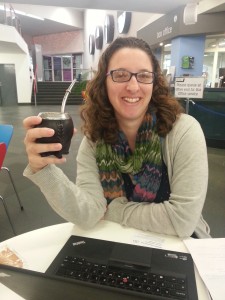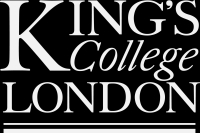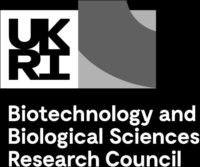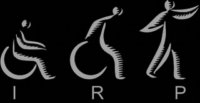 Marcela, as you may have already guessed, is an Argentinean who absolutely requires the daily morning dose of caffeine, of course in the form of mate, to be a functioning biologist.
Marcela, as you may have already guessed, is an Argentinean who absolutely requires the daily morning dose of caffeine, of course in the form of mate, to be a functioning biologist.
A very proud alumni of the University of Buenos Aires and the Elgoyhen lab, Marcela obtained her Licenciate degree in Biological Sciences (which in European language is kind of like a BSc+MSc) in 2005, after 7 years of way too many lectures, practicals, seminars and mini-thesis viva. She fondly remembers studying the life cycles of fungi and the theoretical cycle of Carnot.
Marcela’s postgraduate time revolved around studying the molecular evolution of inner ear nicotinic receptors, under Belén Elgoyhen’s supervision. This 5 year journey happily ended in 2011 with a PhD in Biological Sciences, the presentation of a thesis entitled “Functional consequences of adaptive evolution of α9α10 nicotinic acetylcholine receptors”, luckily some papers, and a deep obsession for evolutionary biology.
Of course, this was the compass that guided the search for a postdoc overseas and the exploration of a new research field. And thus it was that Marcela landed at the MRC Centre for Developmental Neurobiology in 2013, joining Richard Wingate’s lab on a Royal Society Newton International Fellowship to study the evolution and development of hindbrain nuclei. And a couple of years later, a short postdoc with Anthony Graham, studying the development of the intriguing mesencephalic trigeminal nucleus.
Needless to say, Marcela is very much a fan of multidisciplinary/systemic projects, loves puzzles and is always looking for the next great challenge. The current gigantic challenge started not even two months ago, joining the Grubb lab on a 3-year Leverhulme Trust-funded post-doc position. This time around the everyday lab life revolves around doing some single cell epigenomics to figure out if DNA methylation has anything to do with experience dependent plasticity of olfactory bulb dopaminergic neurons. Game on!
See Marcela’s publications here!




